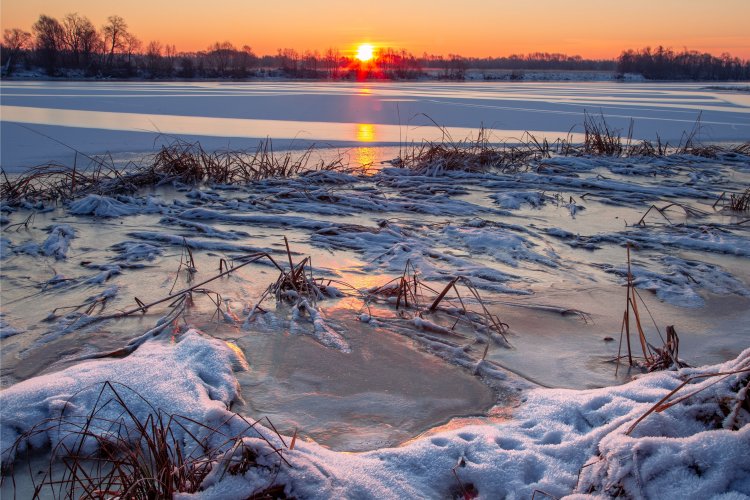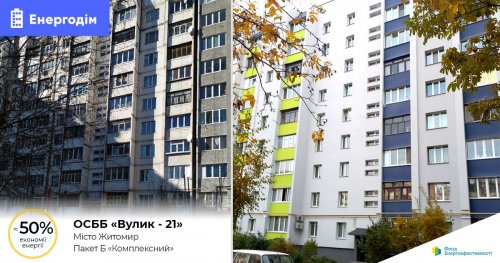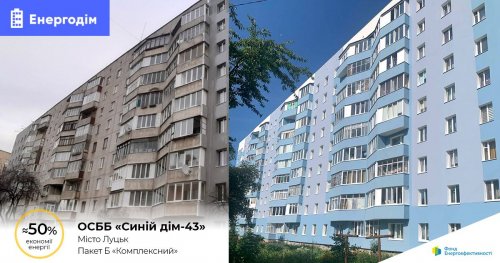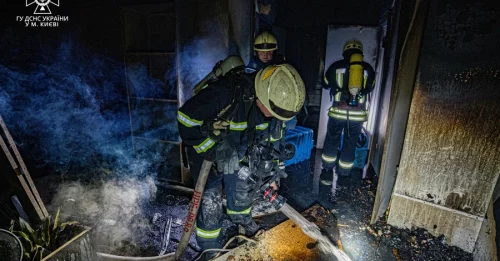Specialists of the State Energy Efficiency Agency and the Expert Council have prepared practical recommendations for the autumn-winter period of 2022/2023.
They will help the communities, in particular the leaders and representatives of the Center for Environmental Protection, local authorities, as well as the heads of condominiums, says the press release of the State Energy Efficiency Agency.
The most important steps for communities
The priority is to provide medical institutions with backup sources of electric and thermal energy (cogeneration plants, electric generators and boilers, modular boiler houses, etc.), as well as autonomous water supply and sewage. It is necessary to optimize the use of boilers and sterilization cabinets. Develop schemes for reducing, if necessary, the consumption of electrical and thermal energy to the levels provided by backup sources. Provide a two-week supply of fuel, drinking and technical water.
For the effective organization of energy consumption management, appoint a person responsible for the implementation of the energy management system in each government body and determine his powers. Accelerate the implementation of energy management systems.
Assess the possibility of using the energy service to optimize energy consumption by authorities, state institutions, state-owned and communal enterprises, etc.
Analyze the possibilities of introducing local programs to stimulate energy-efficient measures in multi-apartment and private residential buildings.
Stop the use of architectural lighting and illuminated social advertising on state and communal buildings.
Reduce the number of heated buildings, the area of heated and lighting rooms, optimize working hours with the maximum transfer to a remote form of work.
If possible, use inverter-type split systems, heat pumps, solid fuel boilers, photovoltaic panels and solar collectors, etc., to reheat air and water in buildings and premises.
As much as possible, transfer employees of enterprises and communally owned institutions to a remote form of work. Check the efficiency of information transmission channels under various scenarios of the development of events in the region.
Transfer secondary and higher education institutions to distance education (if possible), move vacations to the coldest period; to provide for rotation of preschool education institutions.
Agree with the owners on changing the operating modes of shopping and entertainment centers, office centers, which will reduce the load on the energy system during peak hours (08:00-10:00, 17:00-23:00), as well as encourage them to reduce the consumption of electricity and heat energy, especially during peak hours.
Create an emergency reserve of mobile power plants, primarily cogeneration (for the simultaneous generation of electricity and thermal energy); develop a scheme of their possible distribution, arrange inserts for their quick connection to networks.
Create a register of mobile power plants, energy storage devices, large-capacity uninterruptible power supplies that are privately owned and that can be used in emergency situations with the consent of the owners.
Ensure availability of latches for segmentation of centralized heat supply networks.
Develop and disseminate information on citizens' actions in case of:
- emergency interruption of the supply of electricity, thermal energy, natural gas and water, lack of communication;
- the need to replace or adjust boilers and install inverter-type split systems, heat pumps, solid fuel boilers, photovoltaic panels and solar collectors, etc.
Insulate the shelter, ensure thermal insulation of entrances, backup sources of electric and thermal energy (or the possibility of connecting to them), supply and exhaust ventilation, reserves of drinking and technical water, bio-toilets.
Inform residents about household measures for preparation and passage of the autumn-winter period.
The most important steps for managers of condominiums
Seal doors in entrances, install closers (springs) for their automatic closing; if possible, equip thermal vestibules or install double doors.
Glaze and seal all windows in common areas (if impossible, cover them with film, plywood, etc.).
Provide thermal insulation, insulation of common areas, technical floors, attics, basements; thermal insulation of the boiler room, individual heating points, pipelines of centralized heat supply and hot water supply.
Replace incandescent lamps in common areas with low-power LEDs, if possible, additionally install switches with motion sensors.
Balance the heat supply system, adjust individual heat points.
Check the operation of the drain taps and air valves installed in the home heating and water supply systems, make sure that the coolant (water) can be drained in the event of an emergency.
Inform residents about the maximum possible load level of the electrical network in each apartment.
Inform residents about household measures for preparation and passage of the autumn-winter period, in particular regarding the most efficient and economical use of electricity.
Create home initiative groups, mutual aid committees; if necessary, approve household schedules for the use of powerful electrical devices and equipment.
If there is a shelter, insulate it, seal the entrance door, ensure their thermal insulation (if possible, equip a thermal vestibule or install double doors), provide for the presence of a source of electrical and/or thermal energy, supply and exhaust ventilation, a supply of drinking and technical water in the shelter , bio-toilet.
Place in publicly accessible places information about the nearest shelter and the actions of the residents of the building in the event of an emergency interruption of the supply of electricity, heat energy, natural gas and water.
The press service noted that such important measures should be taken in order to prepare for winter in the conditions of today's realities.
Earlier, EcoPolitic wrote, that Ukrainians were urged, in addition to electricity, save internet traffic, because during emergency and emergency shutdowns, mobile communication stations also lose their power source.
As EcoPolitic previously reported, specialists of the analytical center DiXi Group have prepared advice in case of force majeure outages electricity, water, gas and heat supply.





